Service Developing
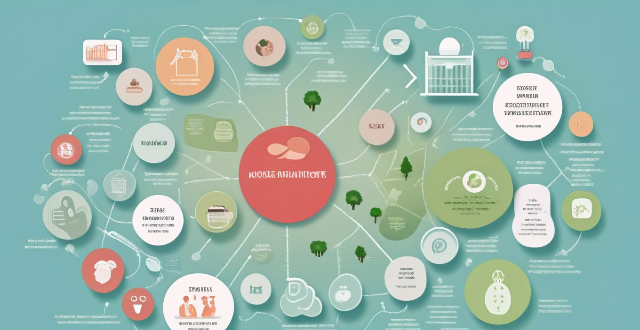
How can we improve access to healthcare services in developing countries ?
Improving access to healthcare services in developing countries is crucial for ensuring the well-being of individuals, regardless of their geographical location or economic status. Key strategies include investing in healthcare infrastructure, training and recruiting healthcare professionals, implementing community-based health programs, and utilizing technology and innovation. By adopting a multifaceted approach that addresses various aspects of the healthcare system, it is possible to make significant strides in improving access to quality healthcare services for all individuals living in developing countries.

What role do developing countries play in climate governance ?
The article discusses the crucial role of developing countries in climate governance, highlighting their vulnerability to climate change, growing greenhouse gas emissions, active participation in international negotiations, innovation and technology transfer, financing and investment needs, and capacity building requirements. It emphasizes that developing countries are essential for achieving a successful outcome in the global fight against climate change.

How does climate debt affect developing countries ?
The concept of climate debt acknowledges the unequal impact of climate change on developing countries, which have contributed less to the problem but suffer more from its effects. This includes economic losses, social challenges such as health concerns and food insecurity, environmental threats like biodiversity loss and water scarcity, and political and legal issues including migration and international agreements. To address these challenges, initiatives like financial transfers, technology sharing, capacity building, debt forgiveness, and just transition policies are being implemented. Recognizing and supporting the needs of developing nations is crucial for achieving a more equitable and sustainable global future.
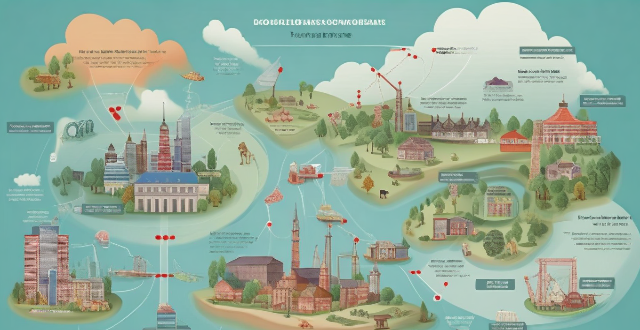
Can developing countries achieve the same climate goals as developed ones ?
This discussion explores the complexities surrounding whether developing countries can achieve the same climate goals as developed ones. It outlines the challenges such as financial constraints, infrastructure gaps, and socioeconomic barriers, but also highlights opportunities like leapfrogging technology, policy innovations, and cultural adaptability. The conclusion suggests that with international support, strategic policy-making, and a focus on sustainable development, developing nations can make significant progress towards sustainability.

Are iPhone parallel imports eligible for Apple's after-sales service ?
iPhone parallel imports can be eligible for Apple's after-sales service if they meet certain conditions, including proof of purchase, valid warranty, no tampering, and region compatibility.

How does a VPN service work ?
A VPN (Virtual Private Network) is a service that encrypts users' internet traffic and masks their IP addresses to protect their privacy and security online. It consists of a client software installed on the user's device and a server that acts as an intermediary between the user and the internet. VPNs use tunneling protocols and encryption algorithms to establish secure connections, with options for both automated and manual configuration methods. They are particularly useful in masking users' IP addresses and ensuring data transmission security. However, some VPN services may impact internet speeds and raise privacy concerns if they collect and sell user data. When choosing a VPN service, consider its performance, reliability, and privacy policy.
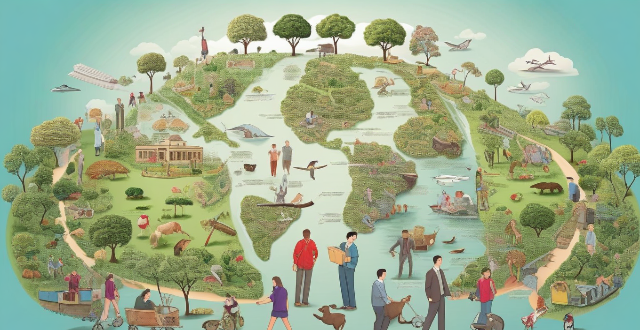
How do developing countries participate in international climate agreements ?
Developing countries play a crucial role in the global effort to combat climate change. Their participation in international climate agreements is essential for achieving a sustainable future for all nations. This article discusses how developing countries can engage with these agreements and contribute to global climate action by prioritizing education and awareness, seeking technical assistance, accessing financial and technological support, ensuring inclusivity and representation, building capacity through institutional strengthening and training programs, and engaging in collaboration and partnerships. By addressing these key points, developing countries can play a significant role in shaping global climate policy and contributing to a more sustainable future for our planet.
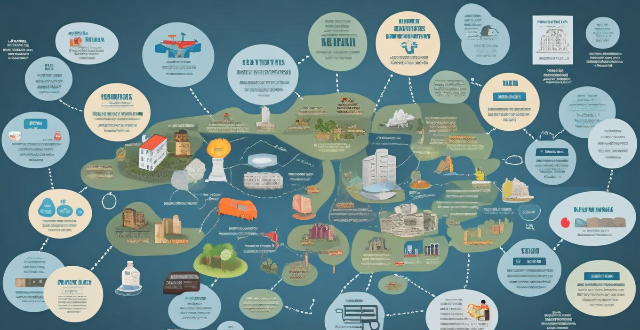
How do climate policies vary between developed and developing countries ?
This article compares the climate policies of developed and developing countries, highlighting differences in economic resources, technological capabilities, and political priorities. Developed countries have larger economies and more financial resources to invest in climate change initiatives, while developing countries face challenges due to limited financial resources. Technological capabilities also differ significantly, with developed countries possessing advanced technologies for renewable energy and emission reduction strategies, while developing countries lack such infrastructure. Political priorities also vary, with developed countries often prioritizing climate action, while developing countries may prioritize other pressing issues. The article concludes that international cooperation and support mechanisms are crucial for bridging these gaps and fostering a global response to climate change that is both equitable and effective.
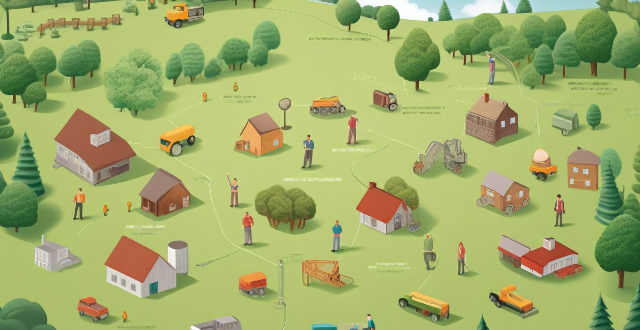
How do economic indicators differ between developed and developing countries ?
Economic indicators reflect the health and performance of a country's economy, with significant differences between developed and developing countries. Developed countries typically have higher GDP and GDP per capita values, lower inflation rates, more robust social safety nets, and attract high levels of foreign direct investment (FDI). They also score high on the Human Development Index (HDI), have more balanced trade positions, and while income inequality exists, there are often stronger welfare systems to mitigate its effects. On the other hand, developing countries often have lower GDP and GDP per capita, higher inflation rates, less developed social safety nets, and receive less FDI due to perceived risks. They also tend to have lower HDI scores, struggle with trade deficits, and face more pronounced income inequality. However, it is important to note that each country is unique and may exhibit characteristics that do not strictly align with typical developed or developing country traits. Economic indicators should always be considered within the context of a country's specific circumstances.
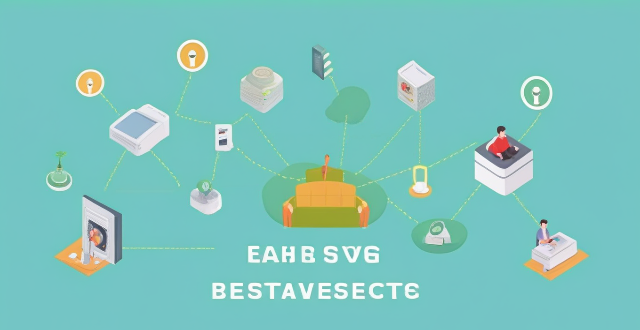
How do carbon credit systems impact developing countries ?
Carbon credit systems can have both positive and negative impacts on developing countries, including economic development, environmental benefits, technology transfer, market risks, social impacts, and environmental concerns. Policymakers and stakeholders must carefully consider these impacts when designing and implementing carbon credit projects in developing countries.

Can developing countries meet the same climate commitments as developed ones ?
Climate change is a global challenge that requires collective action from all countries, regardless of their level of development. However, the question arises: can developing countries meet the same climate commitments as developed ones? This article discusses the differences in economic and technological capabilities, international support and collaboration, and national priorities and policy choices between developed and developing countries. While there are significant differences between the two groups of countries in terms of their ability to meet stringent climate commitments, international support and collaboration can help bridge these gaps. Additionally, national priorities and policy choices play a crucial role in determining whether developing countries can successfully implement climate actions while balancing other developmental goals.

What are the challenges faced by developing countries in emission reduction ?
Developing countries face numerous challenges in reducing their greenhouse gas emissions, including lack of financial resources, technological constraints, socio-economic factors, policy and regulatory challenges, cultural and educational barriers, and natural resource availability. These challenges highlight the complex nature of emission reduction efforts in developing countries and underscore the need for international cooperation, financial assistance, and technology transfer to support their transition to a low-carbon future.

How do I contact customer service for my mobile operator ?
How to Contact Customer Service for Your Mobile Operator

Can exercise reduce the risk of developing cardiovascular diseases ?
Cardiovascular diseases (CVDs) are a leading cause of death worldwide, and regular physical activity or exercise is one of the most effective ways to reduce the risk of developing them. Exercise helps improve blood circulation, lower cholesterol levels, reduce inflammation, manage weight, and improve glucose control. The American Heart Association recommends at least 150 minutes per week of moderate-intensity aerobic activity or 75 minutes per week of vigorous-intensity aerobic activity, along with muscle-strengthening activities at least two days per week.

Is wind energy a viable option for developing countries ?
Is wind energy a viable option for developing countries? Yes, wind energy offers numerous benefits such as cost-effectiveness, sustainability, job creation, and improved energy security. However, several challenges must be addressed including infrastructure needs, financing barriers, policy development, and environmental considerations. With careful planning and strategic investments, wind energy can indeed be a viable option for developing countries looking to build a sustainable future.
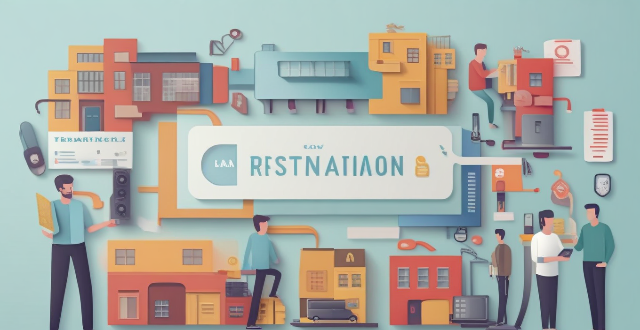
How can automation be used to improve customer service ?
Automation can significantly enhance customer service by streamlining processes, reducing errors, and providing consistent support. It enables personalized communication through chatbots and email automation, efficient processes via self-service options and backend automation, a consistent experience with standardized responses, cost-effective solutions through scalability, and continuous improvement using feedback loops. As technology progresses, the potential for automation in customer service will continue to expand, leading to more innovative ways to meet customer needs.

What role do developing countries play in climate summit discussions ?
Developing countries play a significant role in climate summit discussions by contributing to mitigation efforts, adaptation strategies, and technology transfer. However, they face challenges such as limited resources, unequal responsibility, and lack of representation. It is crucial to recognize and address these challenges to ensure that developing countries are adequately represented and supported in climate negotiations.

Why does my cell phone have no service in some places ?
Cell phone service can be affected by various factors, leading to no service or weak signal in certain areas. The main reasons include network coverage, physical obstructions, technical issues, and other external factors like weather conditions and congestion. It's essential to check with your cell phone provider if you frequently face service issues in specific locations.

Can developed and developing countries achieve carbon neutrality at the same pace ?
The article discusses the challenges and potential solutions for developing countries to achieve carbon neutrality at the same pace as developed countries. The key differences between developed and developing countries in terms of economic development, technological advancements, and political will are highlighted. Developed countries have higher GDP per capita, more resources for research and development, and greater financial capacity to invest in renewable energy infrastructure. In contrast, developing countries have lower GDP per capita, limited resources for research and development, and less financial capacity to invest in renewable energy infrastructure. Technological advancements also play a crucial role in achieving carbon neutrality. Developed countries have advanced technology and innovation in clean energy sectors, access to cutting-edge research facilities, and well-established industries with experience in implementing sustainable practices. In contrast, developing countries have emerging technology and innovation in clean energy sectors, limited access to advanced research facilities, and infant industries with less experience in implementing sustainable practices. Political will is another factor that affects the pace of achieving carbon neutrality. Developed countries have stronger political commitment to addressing climate change through policy measures, more established regulatory frameworks for promoting renewable energy adoption, and greater public awareness and support for environmental issues. In contrast, developing countries have varying levels of political commitment to addressing climate change through policy measures, less established regulatory frameworks for promoting renewable energy adoption, and lower public awareness and support for environmental issues due to other pressing concerns such as poverty and healthcare. Developing countries face several challenges in achieving carbon neutrality, including lack of financial resources, technological barriers, and infrastructure challenges. Potential solutions for developing countries include international cooperation and funding, capacity building and education, and policy interventions and regulatory reforms. By working together through these solutions, both developed and developing countries can make significant progress towards a more sustainable future.
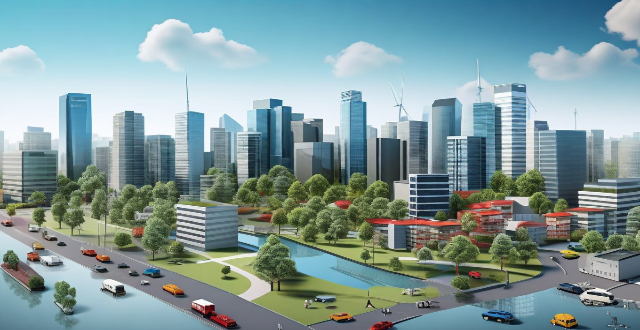
How can developing countries benefit from implementing renewable energy solutions ?
Renewable energy solutions offer significant benefits for developing countries, including reduced energy costs, job creation, improved health and environmental quality, increased energy security, and climate change mitigation. By investing in renewable energy infrastructure, these countries can build more sustainable and prosperous futures for themselves and their citizens.

What role do developing countries play in the Paris Climate Agreement ?
The Paris Climate Agreement, adopted in 2015, is a global response to the urgent need for action on climate change. It represents a significant step forward in international efforts to mitigate the effects of climate change and adapt to its impacts. Developing countries play a crucial role in this agreement, as they are disproportionately affected by climate change and have unique challenges and opportunities in addressing it. Key Points: - Many developing countries are located in regions that are particularly vulnerable to the impacts of climate change, making their participation essential for building resilience and adaptive capacity. - Developing countries have significant potential for mitigating greenhouse gas emissions through sustainable development pathways, renewable energy deployment, and forestry activities, which are vital for achieving the long-term temperature goals set out in the agreement. - The Paris Agreement recognizes the need for developed countries to provide financial and technological support to help developing countries implement their climate actions, which is crucial for enabling these countries to build low-carbon, climate-resilient economies. - Under the Paris Agreement, each country submits National Determined Contributions (NDCs), which outline their planned contributions to mitigating climate change and adapting to its impacts. Developing countries have submitted a wide range of NDCs, reflecting their diverse circumstances and priorities. - The Paris Agreement acknowledges the need to address loss and damage associated with the impacts of climate change in developing countries, particularly in vulnerable communities. This includes both slow-onset changes and sudden-onset events, such as floods and droughts. - The agreement emphasizes the importance of capacity building for developing countries to enhance their ability to implement climate actions effectively, including improving institutional arrangements, strengthening technical expertise, and fostering knowledge sharing. In conclusion, developing countries are integral participants in the Paris Climate Agreement, bringing unique perspectives, challenges, and opportunities to the global effort to combat climate change. Their active engagement is critical for achieving the goals of the agreement and ensuring a more equitable and sustainable future for all.

How do developing countries benefit from the Clean Development Mechanism (CDM) ?
How Developing Countries Benefit from the Clean Development Mechanism (CDM) The Clean Development Mechanism (CDM) of the Kyoto Protocol brings numerous benefits to developing countries, including technology transfer, sustainable development, and environmental advantages. It also enhances their capacity building, global engagement, and influences policy-making towards sustainability. Overall, the CDM aids in reducing emissions while fostering economic growth and environmental conservation.
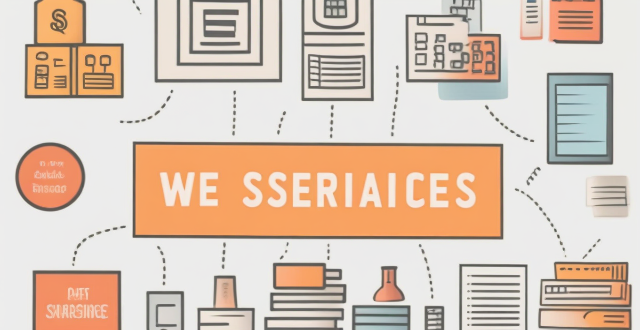
How can I compare different online shopping sites for their customer service ?
In this article, we discuss how to compare different online shopping sites for their customer service. The first step is to research and gather information by reading reviews and testimonials, checking social media presence, and asking for recommendations from friends or family. The second step is to analyze the information by comparing customer service options, evaluating response time, and assessing quality of service. The final step is to make a decision based on weighing pros and cons and trying before you buy. By following these steps, you can choose an online shopping site that offers excellent customer service and meets your needs.
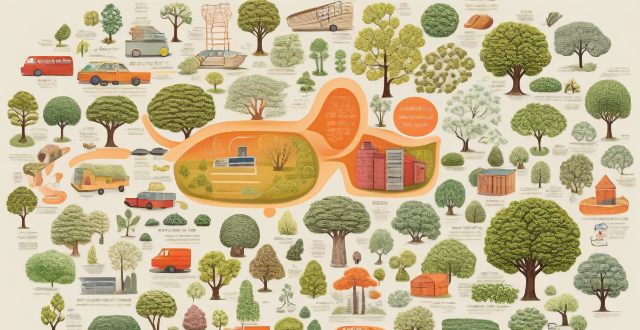
Is it ethical for developed countries to consume more resources than developing ones ?
The question of whether developed countries should consume more resources than developing ones is complex, involving considerations of equity, environmental stewardship, economic implications, and social-political dynamics. Ethical concerns include fair distribution of resources and meeting basic needs in developing nations, as well as the responsibility to reduce ecological footprints and mitigate global climate change. Practical considerations involve economic growth, infrastructure needs, national sovereignty, and compliance with international agreements. While ethical arguments exist against overconsumption by developed countries, economic realities and political factors complicate the issue. Many developed nations are adopting sustainable practices, and international cooperation is essential for equitable resource management and conservation. Striking a balance between current needs and future preservation is a universal challenge.
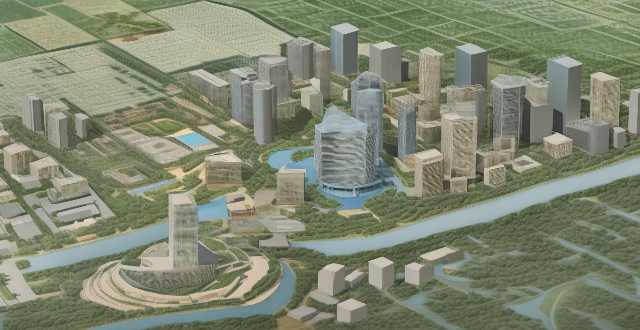
How can developing countries participate effectively in global climate cooperation ?
Developing countries can participate effectively in global climate cooperation by building capacity for climate action, promoting sustainable development pathways, engaging actively in international climate negotiations, and leveraging domestic resources and partnerships. This involves developing national climate policies and strategies, strengthening institutional capacity, integrating climate considerations into national development plans, fostering innovation and technology transfer, participating in global climate dialogue, seeking international support and financing, mobilizing domestic resources for climate action, and fostering cross-sectoral partnerships. By taking these steps, developing countries can contribute significantly to mitigating climate change and adapting to its impacts while promoting sustainable development and poverty reduction.

Should I use a bank or a currency exchange service ?
When it comes to exchanging currencies, you have two main options: banks and currency exchange services. Both have their advantages and disadvantages, so it's important to consider your specific needs before making a decision. Advantages of Using a Bank: - Security: Banks are generally considered more secure than currency exchange services because they are regulated by government agencies. Your money is protected by insurance policies, such as the Federal Deposit Insurance Corporation (FDIC) in the United States. - Convenience: Many banks offer online and mobile banking services, allowing you to easily manage your account and make transactions from anywhere. You can also withdraw cash from ATMs worldwide without additional fees. - Fees: Banks typically charge lower fees for currency exchange compared to currency exchange services. Some banks even offer fee-free currency exchange if you have an account with them. Advantages of Using a Currency Exchange Service: - Better Exchange Rates: Currency exchange services often offer better exchange rates than banks because they specialize in foreign currency exchange. This means you can get more money for your currency than if you were to use a bank. - No Fees: Many currency exchange services do not charge any fees for exchanging currencies. However, some may still charge a small commission or service fee. - Speed: Currency exchange services are usually faster than banks when it comes to exchanging currencies. They often have shorter processing times and can provide you with the currency you need quickly. Disadvantages of Using a Bank: - Limited Availability: Not all banks offer foreign currency exchange services, especially smaller local banks. You may need to visit multiple banks to find one that offers this service. - Higher Fees: As mentioned earlier, banks typically charge higher fees for currency exchange compared to currency exchange services. This can add up quickly if you need to exchange large amounts of currency. Disadvantages of Using a Currency Exchange Service: - Security Risks: Currency exchange services are not regulated by government agencies like banks are. This means there is a higher risk of fraud or theft when using these services. - Limited Locations: Currency exchange services may not be available in all locations, especially in rural areas or smaller towns. You may need to travel to a larger city or airport to find one. - Limited Services: Currency exchange services typically only offer foreign currency exchange and do not provide other banking services like checking accounts or loans. If you need additional financial services, you will need to use a separate bank.

In what ways can developing countries participate effectively in global climate governance ?
**How Developing Countries Can Effectively Participate in Global Climate Governance** Developing countries are pivotal in global climate governance due to their disproportionate impact from climate change. Their effective participation can be achieved through several strategies: 1. **Capacity Building**: This involves enhancing educational programs to raise climate awareness and training local experts. It also includes investing in sustainable infrastructure and establishing research institutions. 2. **Policy Integration**: Countries should enact climate-related legislation, set emission reduction targets, and ensure policy alignment across different sectors while engaging stakeholders. 3. **Finance and Investment**: Access international and domestic funds for climate action, and make smart investments in renewable energy and sustainable agriculture. 4. **Technology Transfer and Innovation**: Developing countries should form technology partnerships, create exchange platforms, and encourage local innovation through R&D and incentives. 5. **Participation in International Negotiations**: They should prepare well for negotiations, build coalitions, advocate for their interests, and use forums for dialogue at international conferences. Through these strategies, developing countries can not only protect themselves but also significantly contribute to the global fight against climate change.

Are there any advantages to using a tax refund service company instead of doing it myself ?
Using a tax refund service company offers several advantages, including time-saving, accuracy, expertise, convenience, and peace of mind. These services can help maximize refunds or minimize tax liability by ensuring accurate tax preparation and staying up-to-date with changing tax laws and regulations.

How do I choose the right VPN service for my needs ?
Choosing the right VPN service is crucial for ensuring your online privacy, security, and accessing geo-restricted content. Here's a guide to help you make an informed decision: 1. Identify Your Needs: Determine what you need the VPN service for, such as privacy and security, accessing geo-restricted content, bypassing censorship, or improving gaming experience. 2. Check the VPN's Location and Jurisdiction: The legal jurisdiction of the VPN provider plays a significant role in your privacy. Look for providers located in countries without strict data retention laws. 3. Encryption and Protocols: The level of encryption and the protocols offered are critical for security. OpenVPN and IKEv2 are considered the most secure and efficient. Avoid VPNs that rely on PPTP or L2TP/IPSec without a separate encryption layer. 4. Server Network and Speed: A vast network of servers worldwide ensures better speed and connectivity. Look for a VPN with numerous servers across different continents. Speed is also crucial, especially if you plan to stream HD videos or download large files. 5. Privacy Policy and Logging: A strict no-logs policy is vital for maintaining your privacy. Always check the privacy policy to ensure they don't collect or share your data. 6. Device Compatibility and User Interface: Choose a VPN that supports all your devices, including smartphones, tablets, and PCs. A user-friendly interface makes it easier to connect and manage your VPN settings. 7. Customer Support: Look for VPNs that offer 24/7 live chat support or at least a responsive ticket system. Good customer service can help resolve technical issues quickly. 8. Price and Value for Money: While free VPNs might seem appealing, they often come with limitations, such as data caps and slower speeds. Paid VPNs offer more features and better performance. Consider the cost against the services provided to determine the best value. 9. Reputation and Reviews: Research the VPN's reputation through reviews and forums. Feedback from other users can provide insights into the reliability and effectiveness of the service. 10. Legal and Ethical Considerations: Ensure that the VPN service you choose complies with local laws and ethical standards. As per the statements from the Ministry of Industry and Information Technology, using a VPN for legitimate business purposes is protected under law. Always use VPNs responsibly and for legitimate purposes. In conclusion, choosing the right VPN service requires careful consideration of your needs, the provider's security measures, server network, privacy policy, device compatibility, customer support, and cost. By following these guidelines, you can find a VPN service that meets your requirements while ensuring your online privacy and security.